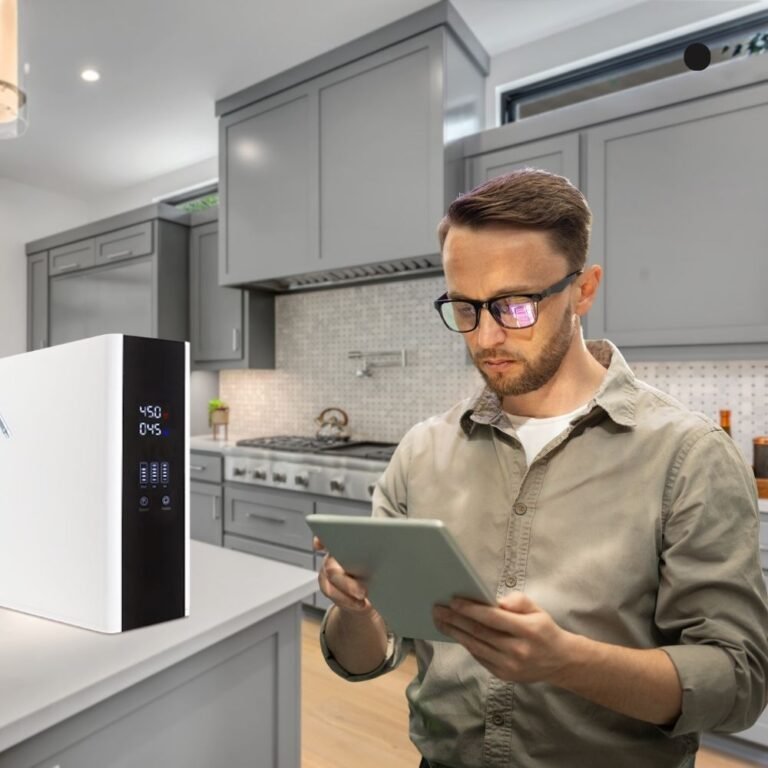The Pros and Cons of Reverse Osmosis: Separating Truth from Hype
Reverse osmosis (RO) is a water treatment process that uses a semipermeable membrane to remove impurities from water. It is widely used in residential and commercial settings to purify drinking water, remove minerals from water for industrial processes, and desalinate seawater for drinking and irrigation.
In recent years, there has been a lot of hype around reverse osmosis as a solution to water pollution and scarcity. But is it really the best option? In this article, we’ll explore the pros and cons of RO and separate truth from hype.
Pros of Reverse Osmosis
1. Removes Impurities from Water
The biggest advantage of reverse osmosis is its ability to remove impurities from water. The semipermeable membrane used in RO filters out particles as small as 0.0001 microns, including bacteria, viruses, and dissolved solids.
This means that reverse osmosis can remove most contaminants from water, including lead, chlorine, fluoride, arsenic, and nitrates. It provides a safe and reliable source of drinking water, especially for people with compromised immune systems or those living in areas with poor water quality.
2. Saves Money in the Long Run
While the initial cost of installing a reverse osmosis system can be high, it can save money in the long run. By removing impurities from water, RO can prolong the life of appliances such as dishwashers, washing machines, and water heaters. It can also reduce the need for bottled water, which is expensive and generates a lot of plastic waste.
3. Low Energy Consumption
Reverse osmosis is a low-energy process that only requires electricity to push water through the membrane. Once the water is purified, it does not require any additional energy to maintain its quality. This makes it an environmentally friendly option for water purification.
Cons of Reverse Osmosis
1. Wastes Water
One of the biggest drawbacks of reverse osmosis is that it wastes water. For every gallon of purified water produced, an RO system can waste between two and four gallons of water. This is because the membrane rejects impurities and sends them down the drain.
While some RO systems have been designed to reduce water waste, it is still a concern for many people. In areas with water scarcity, wasting water is not an option.
2. Removes Beneficial Minerals
Another downside of reverse osmosis is that it removes beneficial minerals from water along with the impurities. These minerals, such as calcium and magnesium, are important for human health and can contribute to the taste of water.
While some RO systems include a remineralization stage to add minerals back into the water, it is not always enough to make up for the loss.
3. Requires Maintenance
Reverse osmosis systems require regular maintenance to ensure they are working properly. The membrane needs to be cleaned and replaced periodically, and the filters need to be changed regularly to prevent clogging.
This can be time-consuming and expensive, especially if the system is not properly maintained and needs to be replaced.
The Role of eWater in Reverse Osmosis
eWater is a leading provider of reverse osmosis systems for residential and commercial use. Their systems are designed to remove impurities from water while minimizing water waste and energy consumption.
eWater’s RO systems include a permeate pump that reduces water waste by up to 80%, as well as a remineralization stage to add minerals back into the water. They also offer a range of maintenance services to ensure their systems are working properly.
Conclusion
Reverse osmosis is a powerful tool for water purification, but it is not without its drawbacks. While it can remove most impurities from water, it also wastes water and removes beneficial minerals. It requires regular maintenance to ensure it is working properly.
If you are considering a reverse osmosis system for your home or business, it is important to weigh the pros and cons carefully and choose a reputable provider like eWater. By separating truth from hype, you can make an informed decision about whether reverse osmosis is the right solution for your water purification needs.


